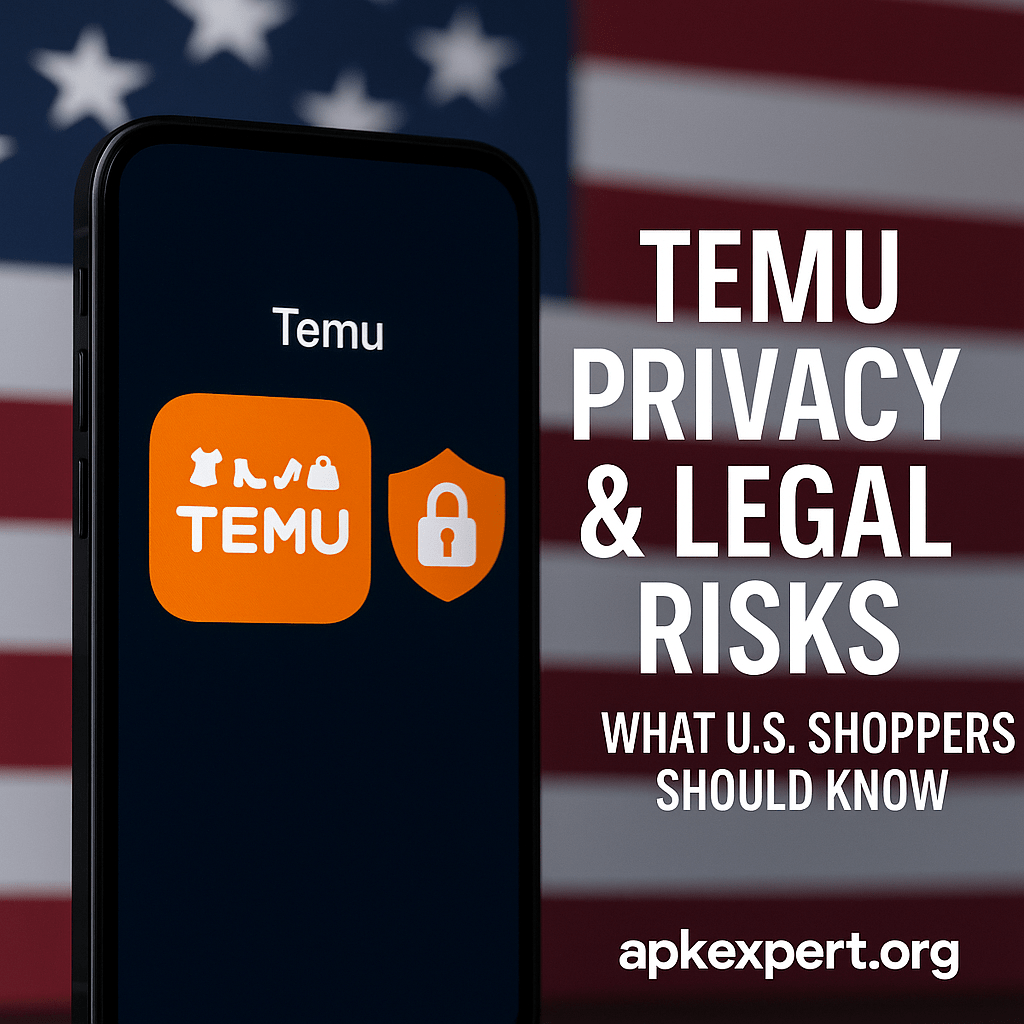Temu Data Privacy & Legal Issues: What U.S. Users Should Know (2025)
Introduction
Temu has quickly become a top shopping app in the U.S., attracting millions with its ultra-cheap prices and free shipping. But behind the flashy deals lies a growing concern: What does Temu do with your personal data? And are there legal risks involved with using this Chinese-based app?
In this article, we break down Temu’s data privacy policies, legal challenges, and what every U.S. user should know before using the app in 2025.
Why Are People Concerned About Temu’s Privacy?
Several red flags have been raised about Temu and its sister company, Pinduoduo:
-
Requests for broad app permissions
-
Concerns over data harvesting practices
-
Prior allegations of spyware (on Pinduoduo’s version)
-
Chinese ownership and potential cross-border data access
These issues have led experts, tech watchdogs, and privacy advocates to question whether Temu poses a security risk, especially to U.S. consumers.
Who Owns Temu?
Temu is owned by PDD Holdings, which also owns Pinduoduo, a massive Chinese e-commerce platform.
-
🌍 Global HQ: Dublin, Ireland (for international operations)
-
🇨🇳 Operational HQ: Shanghai, China
Although the company relocated its global headquarters to Ireland, most development and logistics are still China-based — raising flags for U.S. users and legislators.
What Data Does Temu Collect?
Temu’s privacy policy reveals it collects:
-
👤 Name, phone number, email
-
🛒 Purchase history, cart items, wishlists
-
💳 Payment info (via secure processors)
-
📍 IP address, location, device ID
-
📲 App usage patterns, clicks, time on screen
If users allow extra permissions, it may also access:
-
Contacts (for referral programs)
-
Camera (for in-app photos)
-
Microphone (if enabled)
That’s a significant data footprint compared to apps like Amazon or Walmart.
Is Temu Sharing or Selling My Data?
Temu claims it does not sell user data to third parties, but its privacy policy leaves wiggle room. Key lines include:
“We may share personal information with service providers and affiliates located in other countries… including countries that may not offer the same data protections as your own.”
This clause implies:
-
Potential sharing with China-based partners
-
Limited legal recourse under U.S. privacy laws
-
Risk of third-party data use for marketing or profiling
What Happened with Pinduoduo on Google Play?
In 2023, Pinduoduo (Temu’s sister app) was banned from the Google Play Store after allegations it embedded malicious code that could bypass Android security.
While Temu itself hasn’t faced the same accusations, its connection to Pinduoduo has damaged its trustworthiness.
U.S. Lawmakers Raise Concerns
In 2024–2025, U.S. officials began probing Temu and similar apps for:
-
💾 Data storage practices
-
🔁 Cross-border data transfer
-
🕵️♂️ Consumer surveillance potential
Temu has not yet been banned or restricted, but bipartisan interest is growing, especially after the TikTok investigations raised awareness of Chinese tech influence in the U.S.
Does Temu Comply With U.S. Data Laws?
Temu is not fully subject to U.S. laws like:
-
CCPA (California Consumer Privacy Act)
-
GDPR (EU Regulation, applies only in Europe)
That means:
-
U.S. users can’t fully opt out of tracking
-
You may not know where your data is being stored
-
If breached, recourse is limited
What Risks Do U.S. Consumers Face?
| Risk | Description |
|---|---|
| Data misuse | Behavior tracking for ad profiling |
| Identity theft | If data is leaked in a future breach |
| Government surveillance | Foreign access to U.S. consumer trends |
| Device access risk | Unintentional permissions (camera, microphone) |
| No legal protection | Harder to sue or claim damages internationally |
How to Protect Your Data While Using Temu
-
✅ Use a virtual card or PayPal for payments
-
✅ Disable all unnecessary permissions
-
✅ Shop from the web version instead of the app
-
✅ Turn off location services
-
✅ Avoid logging in with Google or Facebook
-
✅ Use anonymized email (e.g., alias)
-
✅ Delete account after major purchases if concerned
Does Temu Have Access to My Bank Account?
No — Temu doesn’t store your credit card data directly. It uses payment gateways like PayPal, Google Pay, and Stripe. However, be cautious when:
-
Saving payment methods on file
-
Entering card details on public Wi-Fi
-
Using rooted or jailbroken devices
Final Thoughts: Should You Be Worried?
If you’re asking whether Temu is “safe,” the answer is:
✅ For casual shopping? Yes, with smart privacy practices.
⚠️ For privacy-conscious users? Be very cautious.
❌ For sensitive data or critical payments? Better to avoid.
Temu’s legal and privacy framework is still evolving. It may be fun and affordable, but it comes with real trade-offs in digital safety.
FAQs
Q: Does Temu sell my personal info?
A: Not explicitly — but it may share it with affiliates and third parties.
Q: Is Temu a spyware risk?
A: There’s no public evidence Temu is spyware, but its sibling app Pinduoduo was flagged in 2023 for security risks.
Q: Can I request Temu to delete my data?
A: Yes, you can request account deletion via their help center — but there’s no U.S. guarantee on full data erasure.
Q: Should I use a VPN with Temu?
A: It’s a good idea if you’re cautious about location tracking.






